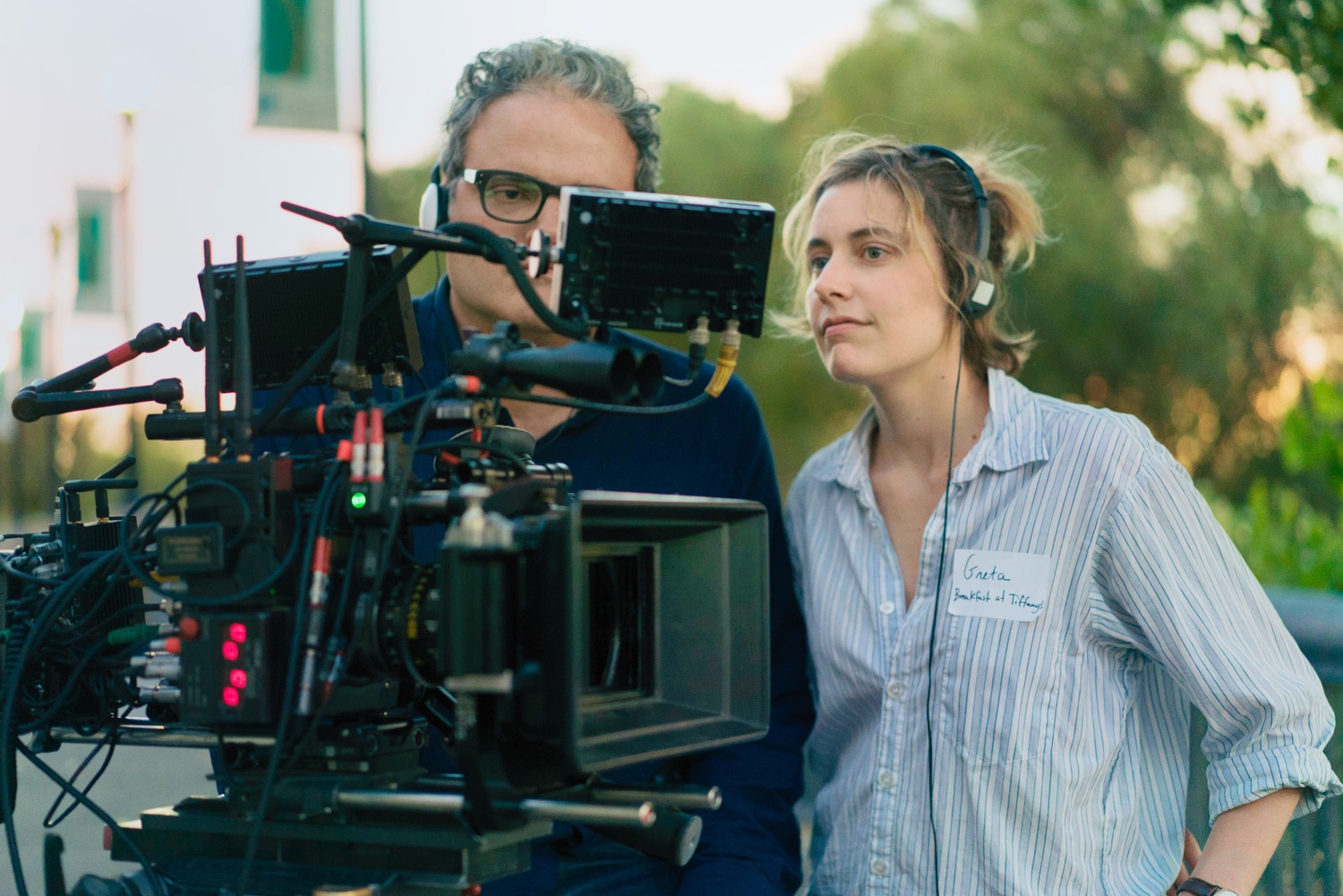
News
Summers Will Not Finish Semester of Teaching as Harvard Investigates Epstein Ties

News
Harvard College Students Report Favoring Divestment from Israel in HUA Survey

News
‘He Should Resign’: Harvard Undergrads Take Hard Line Against Summers Over Epstein Scandal

News
Harvard To Launch New Investigation Into Epstein’s Ties to Summers, Other University Affiliates

News
Harvard Students To Vote on Divestment From Israel in Inaugural HUA Election Survey
Greta Gerwig On Why We Need Women in Film

In the wake of the Harvey Weinstein scandals, stories by female filmmakers now carry a particular gravitas—a fact especially relevant to Greta Gerwig, director of “Lady Bird.” Gerwig’s coming-of-age film revolves around a young woman (Saoirse Ronan) from Sacramento, California, whose personal search for identity coincides with all the rites of passage of senior year of high school—college application period, first boyfriends, prom. Early into awards season, Gerwig’s directorial debut has already seen accolades ranging from a 100 percent rating on Rotten Tomatoes to Best Picture at the New York Film Critics Circle.
“This year has been an amazing year for women in film,” Greta Gerwig said. “Whether it’s a big blockbuster like Patty Jenkins with ‘Wonder Woman,’ or Angelina Jolie with ‘First They Killed My Father,’ or Maggie Betts with ‘Novitiate,’ or Dee Rees with ‘Mudbound.’ It’s just an extraordinary year, and to be part of it is very meaningful to me.”
Critics and audiences have heralded “Lady Bird” as a triumph for stories about teenage girls—a genre that has historically been omitted from “high-brow” film, until recently. “I feel like they’re stories that are somewhat harder to get made or greenlit because they don’t have a genre,” she said. “But I think they’re important to tell because they’re these windows into the lives of girls and women that we don’t get to see if there aren’t female writers and directors and creators.”
“Because there’s a lack of female creators, [female adolescence] is less documented than [its counterpart,] male coming-of-age stories,” Gerwig continued. “I love male coming-of-age stories, and I have nothing against them, but I’m always interested to see what the female version of that is. What is ‘Boyhood’ for a girl? What is ‘The 400 Blows’ for a girl? I felt that I had not seen that as much as I wanted to, so I wanted to make something that was about not only a young woman, but about a mother and a family and a place.”
Gerwig’s focus on familial love resonates in the film’s affectionate treatment of title character Lady Bird and her mother. “I love romance just as much as the next person, and I certainly love romance in movies, but I think romance—especially heterosexual romance—has got a lot of great movies,” Gerwig said. “I didn’t feel that it was particularly, for me at that moment, uncharted territory. It felt like I was interested in emotional relationships that were just as deep and vivid and filled with love and complexity, but that wasn’t a heterosexual romance.”
Though “Lady Bird” is Gerwig’s directorial debut, her filmography mostly credits her as an actress—a background that, she says, colored much of her approach to directing. “I have this intimate understanding of how difficult it is to act on a film set,” she said. “That accumulation of experience added up to what I hoped for the actors was this very productive, very free, very safe environment where they felt like they could play with their characters and create their own characters.”
Although much of the plot of “Lady Bird” parallels Gerwig’s own personal life—both Gerwig and Lady Bird attended Catholic school in Sacramento, then matriculated to university in New York City—she discussed the film’s deviations from autobiography. “Almost always I start with some kernel that’s real, and then very quickly the characters spin out and become people, and the events of the film have their own shape and form that’s outside of the events of my life,” she said. “It’s never mattered to me as a consumer of art what the connection is to the actual autobiography.”
Perhaps it was Gerwig’s status as a Sacramento native that allowed her to portray the town authentically, for all its quirk and nuance. “The more specific you make something, the more universal it will be,” Gerwig said. “So I didn’t want to make it any town. I wanted to make it this town, and this place, and these people.”
The attention to detail pays off. “I didn’t expect how many people would say to me, ‘I’ve never been to Sacramento, but I have a Sacramento in my heart,’” Gerwig said. “It makes me incredibly pleased, and also it’s kind of incredible that everybody can understand it. But I think that’s always the thing I love most about movies. They can take you to worlds you’ve never been in and that you’ll never be able to go in, and you’ll feel like you know it.”
—Staff writer Caroline A. Tsai can be reached at caroline.tsai@thecrimson.com. Follow her on Twitter @carolinetsai3.
—Staff writer Jeffrey Liu can be reached at jeffrey.liu@thecrimson.com.
Want to keep up with breaking news? Subscribe to our email newsletter.

